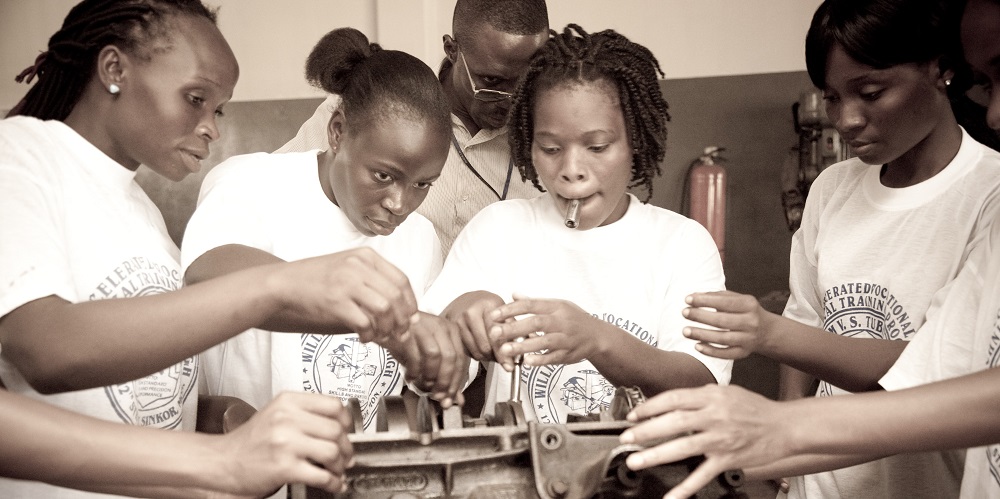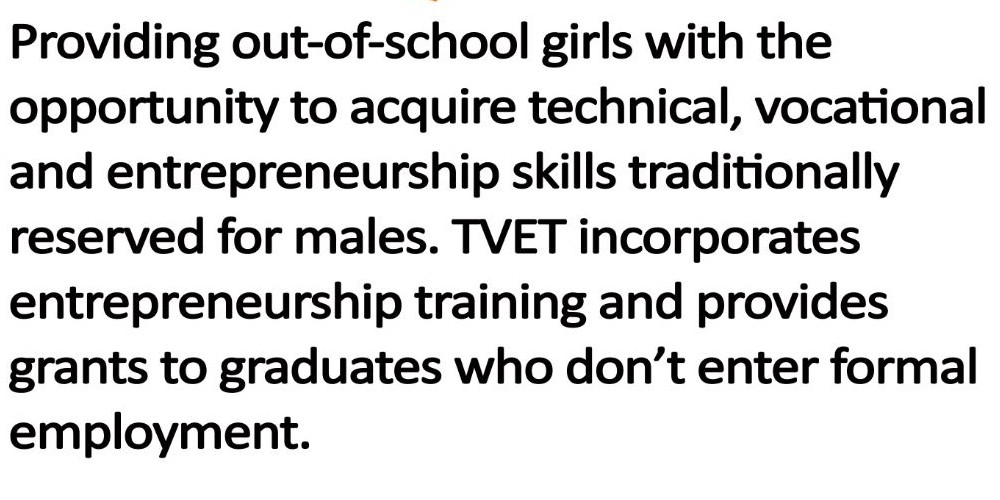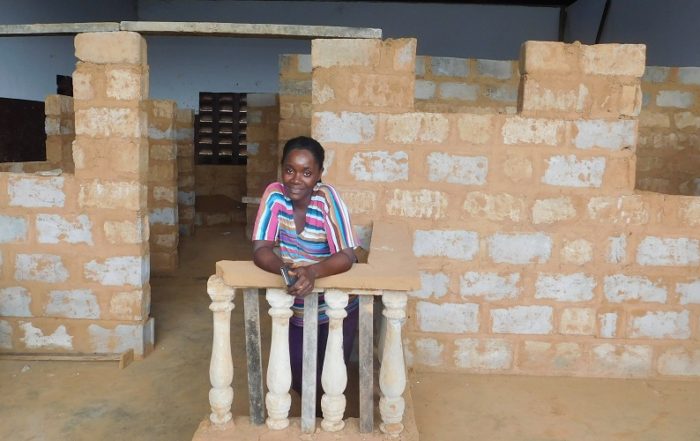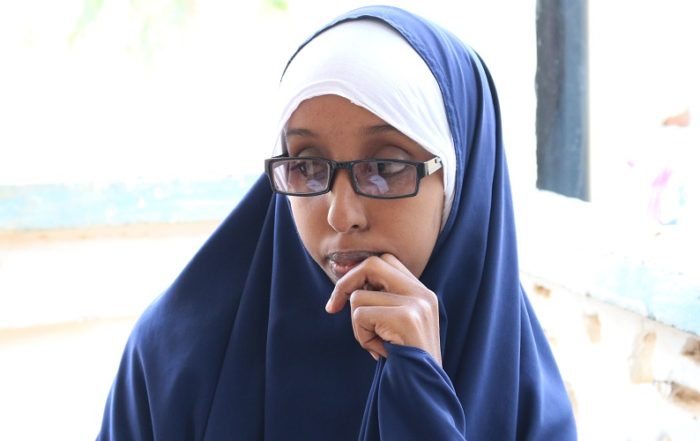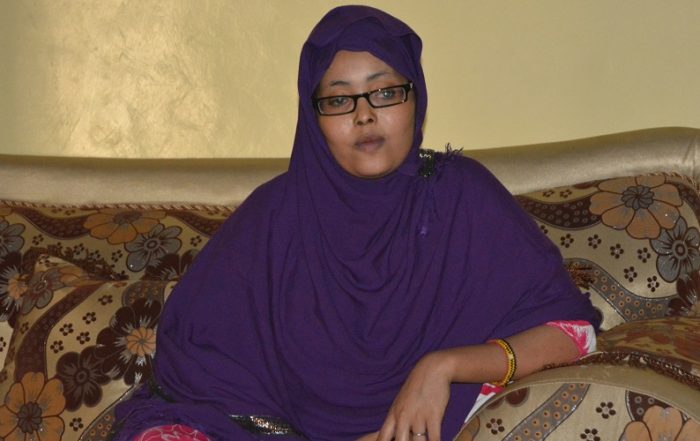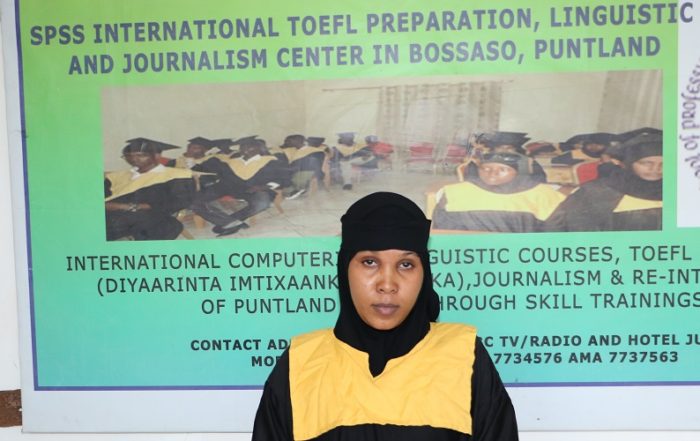Technical and vocational education and training (TVET)
In order to address the challenges related to girls’ education in post-conflict situations, we have initiated an intervention to empower girls through technical and vocational education and training (TVET) in Burundi, Liberia, Guinea, Somalia and Sierra Leone.
The project seeks not only to train out-of-school girls, including in careers traditionally reserved for males, but to equip teachers with gender-responsive pedagogy skills and to influence the integration of gender issues into TVET policies and plans in each of the countries.
FAWE also creates opportunities for out-of-school girls and unemployed women through TVET in Burkina Faso, Liberia, Madagascar, Malawi, Namibia, Nigeria, Sierra Leone and Uganda. This training allows them to establish income-generating activities and improve their life chances.
Programme: Economic Empowerment of Girls in Post-Conflict Situations through Technical and Vocational Education and Training (TVET)
The FAWE-Danida TVET Programme (2009-2014) offered girls and women from Liberia, Guinea, Somalia, Burundi, and Sierra Leonne opportunities to acquire technical and vocational skills, previously dominated by males, ultimately increasing their employability and economic empowerment.
This project presents a strategy of accelerating progress towards SDG 4.5, “By 2030, eliminate gender disparities in education and ensure equal access to all levels of education and vocational training for the vulnerable, including persons with disabilities, indigenous peoples and children in vulnerable situations”
At its inception in 2009, an estimated 39 million of the 77 million children out-of-school lived in conflict-affected areas, affirming the negative impact conflict has on enrollment and school attendance. The Project was thus initiated to address gaps in education, especially those rooted in gender and resulting in the exclusion of many girls from the formal education system.
To mitigate these challenges, the Project provided 894 out-of-school girls in post-conflict states the opportunity to acquire technical, vocational and entrepreneurship skills, and in so doing, increased their prospects for employment in the formal or informal sectors, as well as enhancing their economic status and enabling them contribute to national development.
Programme Objectives
- Establish partnerships with TVET institutions to enrol girls and create enabling
learning and training environments for them; - Build the skills of TVET staff in genderresponsive pedagogy to better address girls’
needs in their institutions; - Encourage communities to actively support TVET initiatives for girls, especially in
non-traditional sectors; - Link girls graduating from TVET institutions with businesses so they are absorbed
into the labour market; and, - Influence national TVET policies and plans so that they are responsive to the needs of
girls and young women.
Achievements
- Empowerment through creating learning opportunities for marginalized beneficiaries that were badly in need of intervention;
- Breaking gender barriers through training in trades hitherto perceived as being solely for males;
- Beneficiaries attaining certification or diplomas and the girls being inspired to go for further education;
- On graduating, beneficiaries gaining more opportunities to find work. All this, along with
community awareness that ultimately resulted in a change in societal perceptions, resulting in greater gender awareness; and, - Remarkable policy improvement (governmental and institutional) and quality education and
training as teacher and student pedagogy became gender inclusive and responsive.
Notable Good Practices from the programme
The vocational skills registered in terms of empowerment, self-worth and economic dividends for the girls and women, as well as service to society and contribution to national development. It was also realized that equipping women and girls with skills hitherto dominated by men increased their chances of employment or self-employment, with better economic value and higher returns. These successes gave mileage to advocacy towards gender-responsive TVET policies and these were examined or revised at the governmental and institutional levels, resulting in more equitably access with benefits for both males and females. Additionally, community advocacy and sensitization invigorated girls’ demand to enroll and changed societal stereotyped perceptions towards participation of males and females in TVET and their entry into the TVET oriented employment sector. Other good practices included the Gender Responsive Pedagogy (GRP); a teachers’ capacity development training and the FAWE TUSEME (let us speak out) approach, which built the beneficiaries’ self-esteem and strengthened their resolve to undertake the TVET training.
Download:
Economic Empowerment of Girls in Post-Conflict Situations through TVET: Best Practices
Economic Empowerment of Girls in PostConflict Situations through TVET: Flyer
Economic Empowerment of Girls in PostConflict Situations through TVET: Testimonials
Priscilla Z. Mambu, Liberia: Economic Empowerment of Out of School Girls through TVET
Before I joined the FAWE program, I was not in a good situation. I was in a relationship with a man and had 2 boys. My fiancé left me with the 2 children. I heard [...]
Khalif Nafiso Mohamed, Somalia: Economic Empowerment of Out of School Girls through TVET
My name is Nafiso Mohamed Khallif. I was among the beneciaries of the TVET training provided by FAWE Somalia. I had dropped out of school and was just staying at home when I heard the [...]
Hibo Diiriye Adan, Somalia: Economic Empowerment of Out of School Girls through TVET
I am single parent with four children of my own and another two from my relatives that stay with me. I dropped out of school and could not get employment. I depended on handouts. One [...]
Farah Samiiro Habib, Somalia: Economic Empowerment of Out of School Girls through TVET
I dropped out of school in 2011 due to lack of fees. One day I heard an announcement on the radio that FAWE Somalia together with the Skills for Youth Center were providing free TVET [...]



